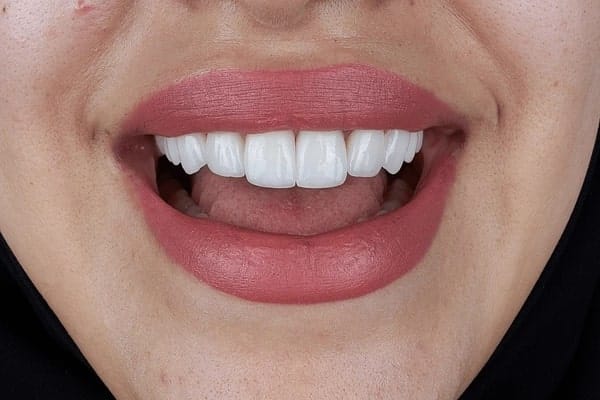A chipped tooth can occur for various reasons, from an accidental fall to biting down on something hard. While this may seem like a minor issue at first, it can often lead to long-term problems if not addressed promptly. The good news is that modern dentistry offers a variety of effective solutions to repair a chipped tooth, restoring both its function and appearance. In this article, we’ll explore the best dental solutions available for chipped tooth repairs, the procedures involved, and what you can expect when seeking treatment.
What Causes a Chipped Tooth?
Before diving into how a chipped tooth can be repaired, it’s essential to understand what causes these chips. Chipped teeth are typically the result of trauma or pressure. Common causes include:
- Accidental falls: Particularly common in children or during sports activities.
- Biting down on hard objects: Such as nuts, ice, or hard candies.
- Tooth decay: Weakened enamel due to decay can cause the tooth to chip more easily.
- Teeth grinding: Also known as bruxism, this can stress teeth and lead to chips over time.
Regardless of the cause, addressing a chipped tooth is important to prevent further damage, infection, or aesthetic concerns.
Can a Chipped Tooth Be Repaired?
Yes, a chipped tooth can most definitely be repaired. Depending on the severity and location of the chip, different dental solutions can be applied. Whether it’s a minor cosmetic issue or a more significant structural concern, there are multiple ways to restore your smile and protect the health of your teeth.
What Are the Best Dental Solutions for a Chipped Tooth?
There are several effective methods to repair a chipped tooth. Here, we’ll break down some of the most commonly used solutions by dentists, which include:
-
Dental Bonding
What is Dental Bonding?
Dental bonding involves applying a tooth-coloured resin to the chipped area. This resin is shaped to match the natural contours of the tooth, effectively hiding the chip. Bonding is a simple and cost-effective method, typically used for minor chips, especially on the front teeth.
Advantages of Dental Bonding:
- Quick procedure (30-60 minutes)
- Minimal tooth preparation
- Painless with minimal discomfort
- Cost-effective for small chips
-
Porcelain Veneers
What are Porcelain Veneers?
Porcelain veneers are thin shells of porcelain custom-designed to cover the front surface of your teeth. This solution is ideal for larger chips or when a more aesthetic result is desired. Veneers not only repair the chip but can also improve the overall appearance of the tooth by changing its shape, size, and colour.
Advantages of Porcelain Veneers:
- Durable and long-lasting
- Aesthetic appeal, closely resembling natural teeth
- Effective for large chips or cosmetic repairs
- Can be combined with other treatments like whitening
-
Dental Crowns
What Are Dental Crowns?
For a more severe chip, especially one that compromises the structure of the tooth, a dental crown may be recommended. A dental crown completely encases the damaged tooth, providing both protection and aesthetic enhancement. Crowns can be made from various materials, including porcelain, ceramic, or metal.
Advantages of Dental Crowns:
- Strong and durable
- Ideal for severely chipped or broken teeth
- Restores full functionality of the tooth
- Long-lasting solution
-
Tooth Fillings
What Are Tooth Fillings?
For minor chips that affect the tooth’s surface, a dental filling can restore the tooth’s shape. Typically made from resin, fillings are used to restore the structural integrity of the tooth. This is particularly useful when the chip is small and doesn’t extend deep into the tooth.
Advantages of Tooth Fillings:
- Ideal for small chips
- Quick and straightforward procedure
- Long-lasting and durable
How Long Does the Tooth Repair Procedure Take?
The length of time required for the repair will depend on the solution chosen. Here is a general breakdown of the procedure times:
| Repair Option | Best For | Material Used | Duration of Procedure | Longevity |
| Dental Bonding | Minor chips on front teeth | Composite resin | 30-60 minutes | 5-10 years |
| Porcelain Veneers | Large chips, cosmetic fix | Porcelain | 1-2 appointments | 10-15 years |
| Dental Crowns | Severe chips, broken teeth | Porcelain, ceramic, metal | 2-3 appointments | 10-15 years |
| Tooth Fillings | Small chips, structural repair | Resin | 30-60 minutes | 5-10 years |
What Materials Are Used for Chipped Tooth Repairs?
The material used for repairing a chipped tooth depends on the chosen dental solution. Here are the most common materials used in tooth repairs:
- Composite Resin: A tooth-coloured plastic material commonly used in dental bonding and fillings.
- Porcelain: A strong and aesthetic material used for veneers and crowns, often selected for its ability to match natural tooth colour.
- Ceramic: Used in crowns, ceramic is durable and has excellent aesthetic qualities, similar to porcelain.
How Do Dentists Repair a Chipped Tooth?
The process of repairing a chipped tooth varies depending on the type of treatment selected. However, the general steps include:
- Initial Consultation: The dentist will assess the extent of the chip and determine the best repair solution.
- Preparation: For procedures like veneers or crowns, the tooth may need to be shaved down or shaped to ensure a good fit.
- Application of Material: The chosen material (bonding resin, porcelain veneer, etc.) is applied and shaped to restore the tooth.
- Final Adjustments: Once the material hardens, the dentist will make any necessary adjustments to ensure that the tooth is properly aligned with the rest of your teeth.
How Can You Prevent a Chipped Tooth in the Future?
While accidents can happen, there are steps you can take to reduce the likelihood of chipping a tooth in the future:
- Wear a Mouthguard: Especially important for athletes or people who grind their teeth at night.
- Avoid Chewing Hard Objects: Stay away from chewing on ice, hard candies, or other tough foods.
- Good Oral Hygiene: Regular brushing and flossing can help maintain the strength of your teeth, reducing the risk of decay that might lead to chips.
- Regular Dental Check-ups: Seeing your dentist regularly can help catch any weaknesses in your teeth before they become bigger issues.
Where Can I Get My Chipped Tooth Repaired?
If you have a chipped tooth, it’s essential to seek professional care. At Palm Beach Dental, we provide a comprehensive range of restorative treatments, including dental bonding, veneers, crowns, and fillings. Our experienced team will help you choose the best solution for your chipped tooth, ensuring that you leave our office with a restored, beautiful smile.
Important FAQs
How long does it take to repair a chipped tooth?
Repair times vary depending on the method used. Dental bonding takes about 30-60 minutes, while procedures like veneers or crowns can take 1-2 appointments.
Is dental bonding painful?
Dental bonding is a painless procedure, as it typically does not require anaesthesia. Any discomfort is minimal and temporary.
Can I fix a chipped tooth at home?
While you can apply temporary measures such as dental wax, it’s crucial to seek professional care through a Dentist to ensure proper repair and avoid further damage.
Will a chipped tooth need to be extracted?
Extraction is not typically necessary for a chipped tooth. However, if the chip is severe and compromises the tooth’s health, a crown or other restorative procedure may be recommended.
How do I care for a chipped tooth after repair?
After repair, avoid hard or sticky foods, maintain good oral hygiene, and attend follow-up appointments for check-ups.
Can a chipped tooth affect my oral health?
Yes, if left untreated, a chipped tooth can lead to increased sensitivity, infection, and further damage, potentially affecting the surrounding teeth.
References:
- Australian Dental Association – Information on tooth decay, chips, and treatment options
- Australian Health Practitioner Regulation Agency (AHPRA) – Dental professional standards


